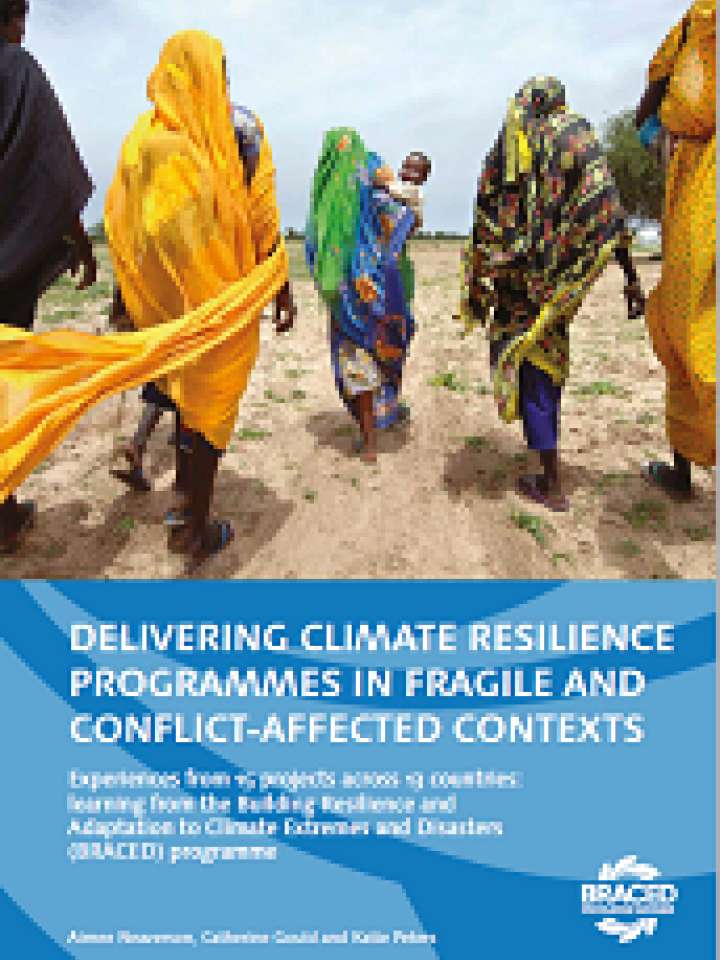Delivering climate resilience programmes in fragile and conflict-affected contexts
This review explores how climate resilience programmes and projects can be designed, established and managed to be resilient themselves in fragile and conflict-affected contexts. It combines evidence-based learning from over four years of implementation from 15 projects across 13 countries, as well as from the BRACED Fund Manager and Knowledge Manager.
A subset of BRACED projects – in Mali, Myanmar, Niger, South Sudan – were explored in particular depth: see the accompanying Case Study Synopsis. The review is structured around three themes: Anticipate operational risks by understanding them, considering how to integrate context analysis and risk management into project design and implementation, improving understanding of local contexts and the nature of risks and regularly refreshing this analysis.
Absorb impacts by building resilience, conflict sensitivity and a ‘Do No Harm’ approach into the project cycle of climate resilience programmes, as well as integrating peace-building, development, humanitarian and climate change adaptation approaches into programmes. Adapt to challenges by aligning risk tolerance and project flexibility between donors and implementing partners, based on trust and clear communication, and establishing adaptive approaches and flexible funding mechanisms that enable the rapid adjustment of activities during crises to protect resilience gains on the ground.
Explore further

